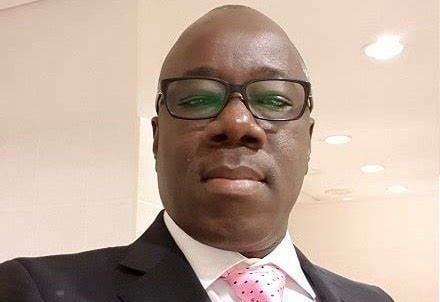Dr. Rasheed Draman, Executive Director of the African Centre for Parliamentary Affairs (ACEPA), has issued a stark warning regarding the success of President John Dramani Mahama’s second term: Parliamentary effectiveness, specifically in its oversight capacity, is paramount. He expressed deep concern that the 9th Parliament, with the National Democratic Congress (NDC) holding a commanding majority, could devolve into a “rubber stamp” for the executive branch, prioritizing partisan loyalty over the crucial needs and interests of the Ghanaian public. This potential acquiescence to the executive, he argues, poses a significant threat to President Mahama’s stated agenda of “resetting” Ghana’s governance.
Dr. Draman’s apprehension stems from the inherent risks associated with a dominant majority. He argues that such an imbalance of power can stifle robust debate and critical scrutiny of government policies and actions. A Parliament composed largely of ruling party members may be less inclined to challenge the executive, leading to a lack of accountability and potentially opening the door for mismanagement or corruption. This, in turn, could undermine public trust in both the legislative and executive branches of government and impede progress on the vital reforms and initiatives needed to revitalize Ghana’s economy and strengthen its democratic institutions.
The call for a more independent and assertive Parliament is not simply a matter of political posturing; it is a fundamental requirement for good governance. A strong and effective legislature acts as a check on executive power, ensuring transparency and accountability in the use of public funds and the implementation of government policies. By scrutinizing proposed legislation, holding public hearings, and conducting investigations, Parliament plays a crucial role in shaping national priorities and safeguarding the interests of the citizenry. A Parliament that shies away from its oversight responsibilities, or one that becomes a mere echo chamber for the executive, risks compromising the very foundations of democracy.
Dr. Draman’s appeal extends beyond mere oversight to encompass a broader plea for inclusivity and collaboration. He specifically urges the newly appointed majority caucus leadership, under the direction of Mahama Ayariga, Member of Parliament for Bawku Central, to actively engage with the minority caucus and create a space for meaningful contributions to the governance process. He argues that a healthy democracy thrives on dissenting voices and robust debate. Silencing or marginalizing the opposition undermines the ability of Parliament to effectively represent the diverse interests of the Ghanaian people.
The inclusion of the minority is not merely a gesture of goodwill; it is a strategic imperative for effective governance. A vibrant and engaged minority can bring alternative perspectives to the table, challenge assumptions, and expose potential flaws in proposed legislation or government policies. By fostering a culture of respectful dialogue and collaboration, Parliament can tap into the collective wisdom of all its members and arrive at solutions that are more comprehensive and representative of the national interest. Ignoring or dismissing the contributions of the minority, on the other hand, risks creating a sense of disenfranchisement and resentment, which can ultimately destabilize the political system.
The success of President Mahama’s “reset” agenda hinges, according to Dr. Draman, on the ability of Parliament to transcend partisan politics and prioritize the well-being of the nation. He envisions a Parliament that is not only independent and assertive in its oversight role but also inclusive and collaborative in its deliberations. A Parliament that embraces these principles will be better equipped to address the complex challenges facing Ghana and create a more prosperous and equitable future for all its citizens. Conversely, a Parliament that succumbs to partisan pressures and neglects its oversight responsibilities risks jeopardizing the very future it is entrusted to safeguard. The 9th Parliament, therefore, stands at a critical juncture, with the opportunity to either embrace its role as a vital check on executive power or become a mere instrument of the ruling party’s agenda. The choice it makes will have profound consequences for the future of Ghana.














